SUMMARY
This is AI generated summarization, which may have errors. For context, always refer to the full article.
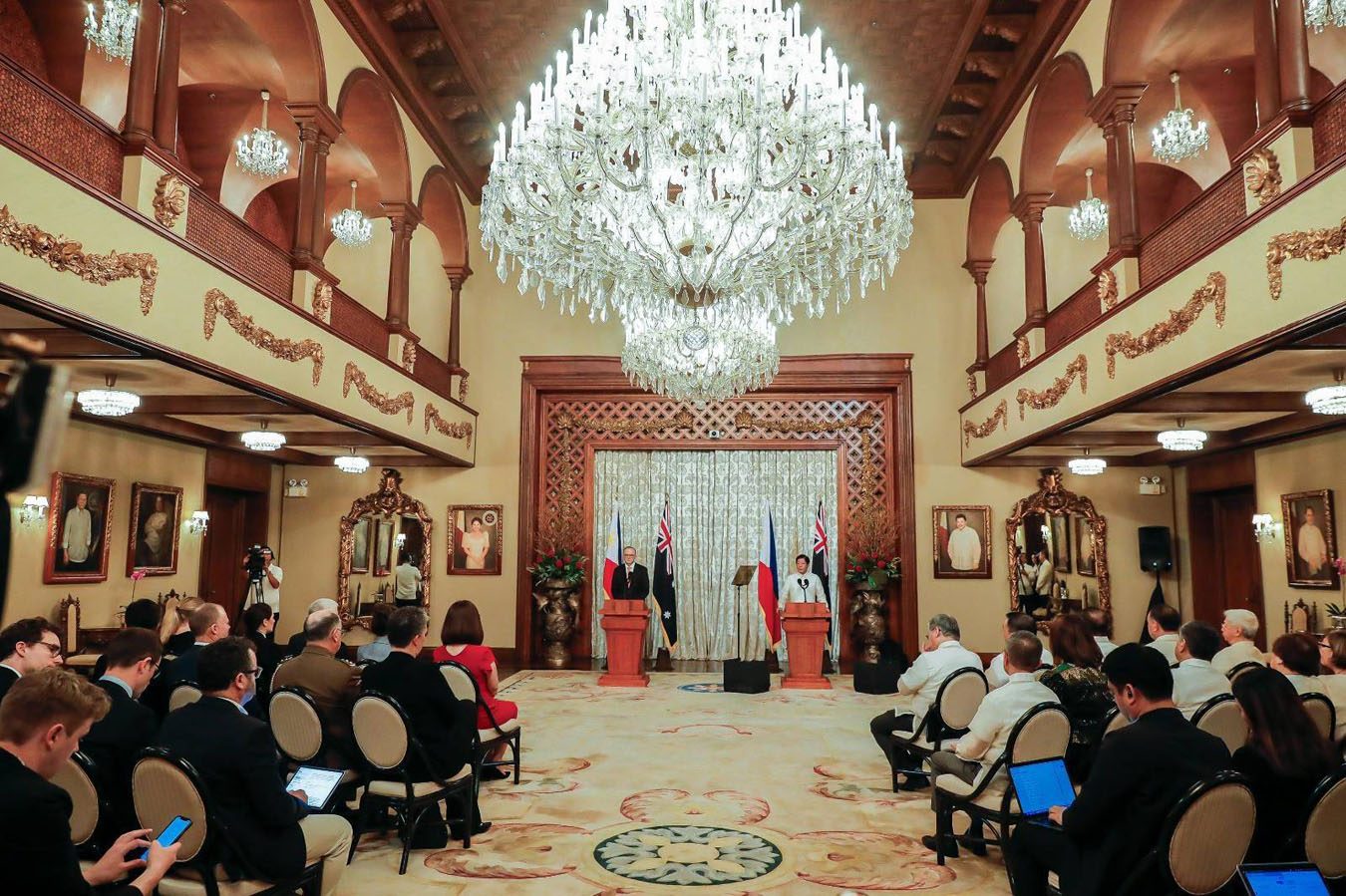
When President Ferdinand Marcos Jr. steps onto the podium of Australia’s House of Representatives, he will also officially become a member of a very exclusive club of select world leaders invited to address the highest governing body in Canberra.
The Philippine president is set to address what Bloomberg has described as a “rare” joint sitting of Australia’s Parliament on Thursday, February 29. It’s an honor that is, no doubt, rare.
Previous invitees include past American presidents Barack Obama, George H.W. Bush, George W. Bush, and Bill Clinton. Chinese leaders Hu Jintao and Xi Jinping have also been accorded the honor.
“I think it’s the strongest testament to the importance of the Philippines for geopolitical relations,” Dr. Maria Tanyag, a research fellow and lecturer at the Australian National University’s Political and International Relations Department, told Rappler in an interview ahead of Marcos’ visit to Canberra.
Officially, Marcos was invited to visit Canberra by current Governor-General David Hurley. While in Canberra, the Australian capital, Marcos is expected to hold meetings with both Hurley, the representative of King Charles III, and with Prime Minister Anthony Albanese.
What’s in a strategic partnership?
Australia has been keen on improving its ties with the Indo-Pacific, especially with Southeast Asia.
Days after Marcos speaks to their parliament, Melbourne will host the Association of Southeast Asian Nations (ASEAN)-Australia Special Summit to mark 75 years of ties between the bloc and Canberra.
Philippine and Australian ties have also grown substantially in the past decade. Just eight years after Manila and Canberra agreed on a comprehensive partnership, ties were elevated to a strategic partnership during Albanese’s official visit to Manila in September 2023.
Months later, in December 2023, the militaries of both countries sailed and flew over the West Philippine Sea for a Maritime Cooperation Activity (MCA) just as tensions were rising between Manila and China.
Tanyag explained that when you talk about a strategic partnership, the emphasis is usually on defense and military investments. “We will see the extent of these alliances – from military, financial decisions to actual institutionalized agreements,” added Tanyag.
The joint declaration on the strategic partnership between the Philippines and Australia states: “We will explore new opportunities and address common challenges, recognising our collective agency and shared responsibility to respond to changing dynamics in the region.”
Statements that cover defense and security ties comprise a chunk of the joint declaration signed by Marcos and Albanese. They also touch on a hot-button issue for Manila and the rest of the region: Beijing’s sweeping claims in the South China Sea, and the tensions that have arisen between China, claimants, and their allies.
Australia and the Philippines agreed that “all disputes should be resolved peacefully, without the threat or use of force or coercion, in accordance with international law, particularly the 1982 United Nations Convention on the Law of the Sea (UNCLOS),” and that the 2016 Arbitral Award, which quashed China’s sweeping claim, is “final and legally binding on both parties.”
The governments of the Philippines and Australia, both maritime nations, also reaffirmed in that agreement the “importance of maritime safety and security, freedom of navigation and overflight and other lawful uses of the seas in accordance with UNCLOS.”
“To this end, we will strengthen bilateral and regional cooperation between maritime policy-making, administration, security and law enforcement agencies through dialogue and coordination, practical engagement and capacity-building activities. We will plan bilateral joint patrols in the South China Sea and in areas of mutual interest to support regional peace and stability,” reads the declaration.
Taiwan was also mentioned in the declaration, just as China continues to insist on reunification.
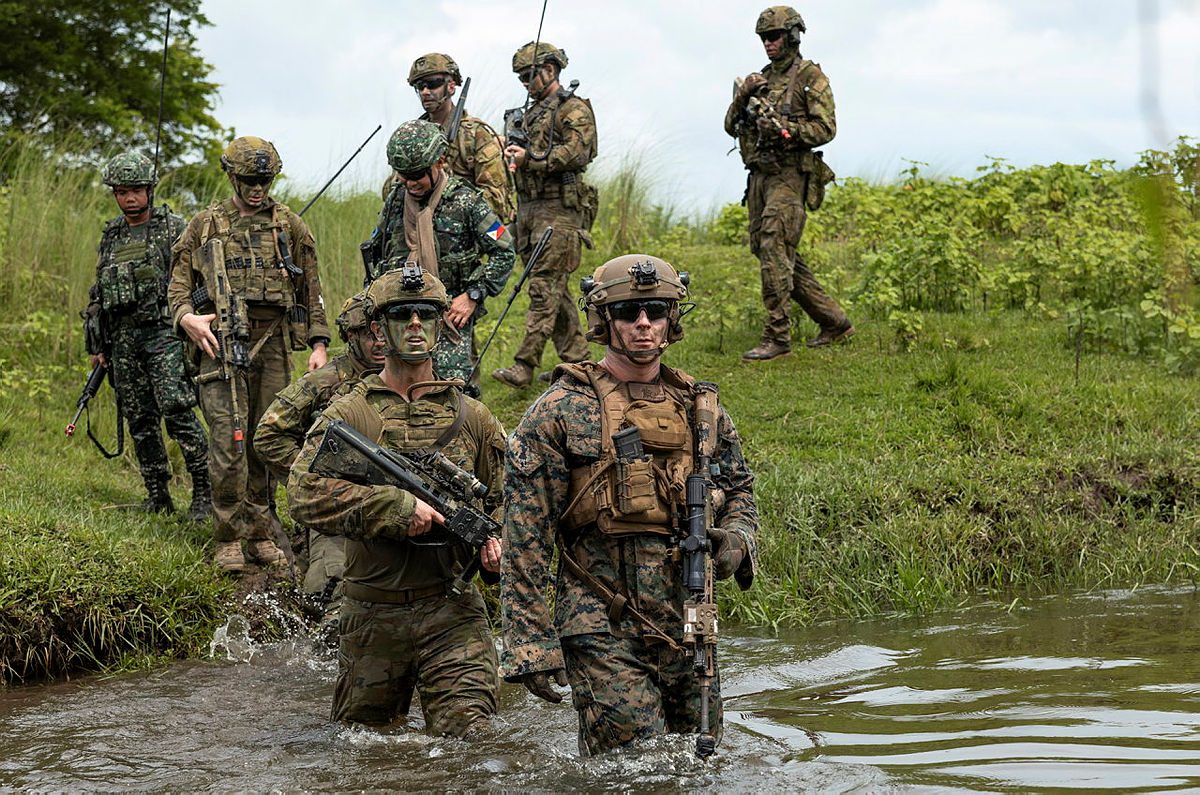
“The visit is envisioned to further cement the strategic partnership that affirmed the two countries’ shared interests in regional prosperity and peace,” said Foreign Affairs Spokesperson Teresita Daza in a briefing in Malacañang on February 27.
Defense ties with Australia run deep – Canberra’s engagements with conflict-hit parts of southern Philippines include equipping security and defense personnel with training and facilities to improve their capacity to combat terrorism.
It’s now steadily expanding as the Philippine military eases out of internal defense and into territorial defense, as mapped out by the National Security Policy under President Marcos.
Besides treaty-ally United States, Australia is only the second country with which the Philippines has a visiting forces agreement. Manila is expecting to ink a similar one – the Reciprocal Access Agreement – with Japan by March 2024.
At least once every two years, Australian troops come to the Philippines for joint exercises under the Indo-Pacific Endeavour (IPE), its international engagement activity in the Southeast Asian and Indian Ocean region. During 2023’s Exercise Alon, Marcos said he wants the joint exercises to continue.
Pros for Marcos, pros for the country
As is the case in almost all of Marcos’ major engagements overseas, addressing parliament is another milestone in the political career of the scion whose clan was once a pariah in political circles here and abroad.
The current President Marcos has been rather selective in evoking the legacy of his infamous father and namesake, the dictator Ferdinand E. Marcos. The second Marcos president cherry picks – mentioning his dictator-father to evoke long-standing ties with other countries, while glossing over the Marcos legacy of human rights abuses and corruption.
International engagements often fulfill the dual purpose of serving the current president’s political interests, domestically and abroad, while also aligning with the country’s strategic interests, Tanyag pointed out.
“He has an image to maintain domestically and an image to maintain internationally. While he might have convinced domestic populations, there’s still a certain… the history of Marcos Sr. is well-established globally, and so he has a lot to rehabilitate at the external front,” she said.
It certainly helps that fostering good ties with Manila is in Canberra’s interests, too.
“At the same time, this is not just about Marcos, as I’ve pointed out. This is about the geopolitical and structural relations in our region. This is, again, just an alignment of political and strategic interests. It could have been any other person who has the same strategic interest, [and] Australia would still be there,” she added.
Australia is keen on upping its ties with ASEAN – on trade, renewable energy, and certainly security. The Philippines fits perfectly into Canberra’s wider vision of being more present in the region. For Manila, an address in Parliament House means articulating its own place in the messy geopolitics of the Indo-Pacific.
“This is a very good opportunity for the Philippines not only to underscore the shared vision about the future with Australia, and this is coming after the two of us elevating our partnership to strategic partnership, but will also help us underscore – because both countries as maritime nations have actually committed to – adherence to the rules-based order of international law,” said Daza.
The Department of Foreign Affairs said agreements are expected to be signed during the visit to Canberra, but Daza declined to expound on what these would cover. – Rappler.com
Add a comment
How does this make you feel?
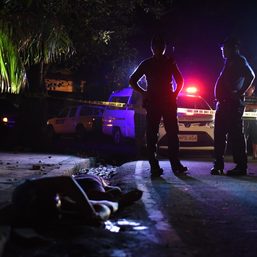

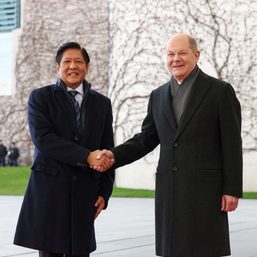
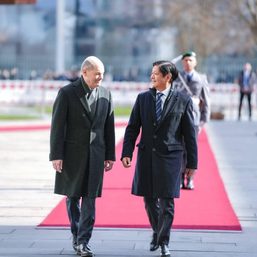
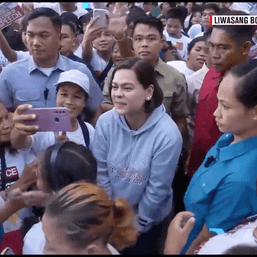
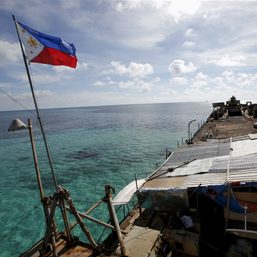
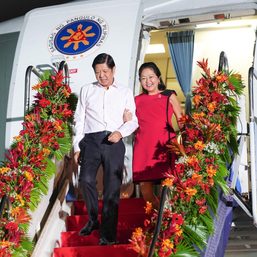
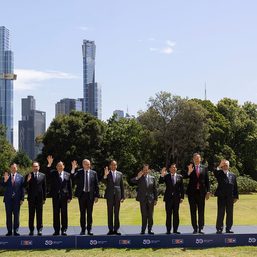
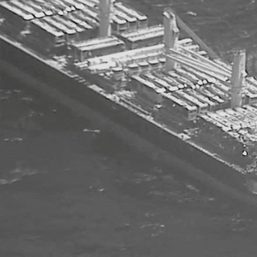
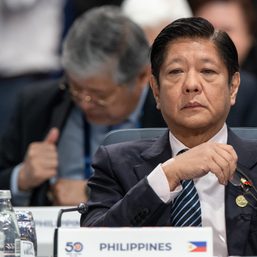
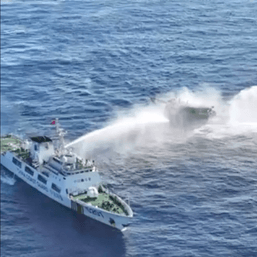
![[ANALYSIS] The sharp power challenge: Defending PH from within](https://www.rappler.com/tachyon/2024/03/sharp-power-challenge-march-5-2024.jpg?resize=257%2C257&crop_strategy=attention)
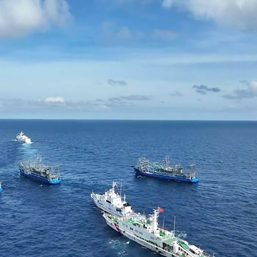
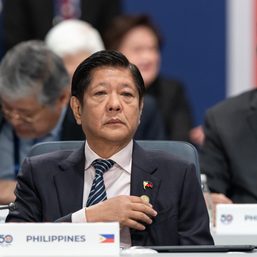
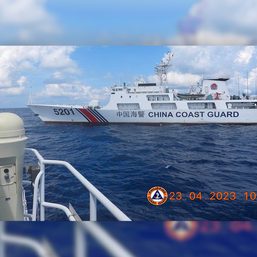


There are no comments yet. Add your comment to start the conversation.